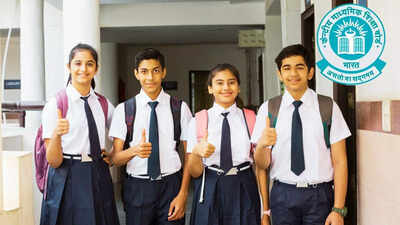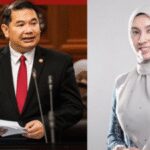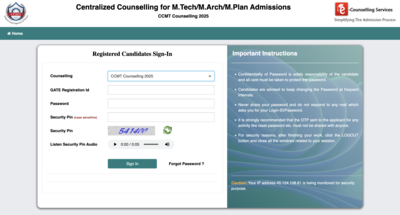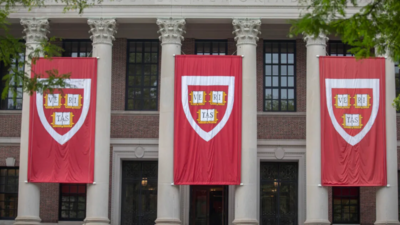
[ad_1]
The Central Board of Secondary Education (CBSE) has recently mandated all affiliated schools to implement the language instruction guidelines outlined in the National Curriculum Framework for School Education (NCF-2023), effective from the academic session 2025–26. Central to the guidelines is the “mother-tongue first” approach, a directive that has garnered both admiration and apprehension. In a nation as culturally and linguistically diverse as India, the policy embodies the potential to either foster holistic growth or exacerbate the already-existing academic disparities. Framed within the contours of the National Education Policy (NEP) 2020, the recommendation urges schools to adopt the child’s home language or regional tongue as the primary medium of instruction until foundational literacy in a secondary language is secured, as explicitly stated in NCF-2023 (Part C, p. 239).Schools have until May 31, 2025, to form NCF Implementation Committees, map students’ home languages, and begin curriculum and teacher training alignments over the summer break. By July 2025, schools must begin implementing the new model, with monthly progress reports to be submitted starting July 5.This move, as CBSE notes, is “not just a curricular shift—it is a pedagogical commitment to India’s linguistic and cultural diversity and unity.”
The pedagogical promise : Early gains in familiar tongues
Empirical research from both international and domestic grounds reaffirms that students learn best when they are taught in a language they speak at home. UNESCO has long advocated for mother tongue-based multilingual education, associating it with Sustainable Development Goal 4 — inclusive and quality education for all.Reams of research suggest that instructions aligning with mother-language contours help students delve into conceptual understanding and strengthen memory retention. When students are able to imbibe the concepts better, it leads to a surge in their confidence levels. Furthermore, it hones students’ ability to think and process in their native language, further bolstering their cognitive scaffolding. Local success stories back this up. In Rajasthan’s Kalyanpur, a multilingual education initiative saw a dramatic shift in classroom engagement. “Now, it’s a miracle there is not a single child who is not able to respond,” said Jashoda Khokariya in an interaction with AFP. She is a teacher who transitioned from Hindi to the local dialect. UNICEF’s data adds weight to the stance by reflecting improvement in attendance, parental involvement, and structured teaching practices. Moreover, India’s trough in learning further demands the urgency to implement this policy. As per the National Achievement Survey 2021 and the Foundational Learning Study 2022, only 39% of students aged 8 met basic reading standards. This dropped to 10% by age 15. The gap is even wider among tribal and marginalised communities. Mother tongue instruction, experts argue, could arrest this early educational failure.
The fault line: A linguistically fragmented reality
Yet, the move is not ecstatically welcomed by all the educational planners, especially the ones hailing from India’s urban grounds. In metropolises like Delhi, Mumbai, and Bengaluru, home to students from a wide array of linguistic backgrounds, the implementation of the policy presents significant challenges. A single CBSE classroom may encompass speakers of more than 10 different languages, rendering the policy’s execution increasingly ambiguous. This gives rise to a pressing question: How can a uniform framework accommodate such profound linguistic diversity?Critics contend that CBSE’s mandate trivializes a complex terrain. The cities that host students from multiple linguistic backgrounds, this policy can be a recipe for disaster. The history of West Bengal stands as a testimony to the stance, when the imposition of Bengali as the primary language of instruction in 1980 led to a decline in English proficiency among students. Later, the policy was reversed with a lesson etched in black and white on how language policy can unintentionally throttle social mobility.This tension is particularly pronounced in low-income families who see English as a ticket to upward mobility. As the 2020 Annual Status of Education Report (ASER) revealed, English-medium private school enrolment in rural India has steadily increased, now exceeding 25% in several states, a clear reflection of aspirational trends.
Between equity and employability: Walking a tightrope
The CBSE clarifies that the move is neither anti-English nor aggressive. The new policy ensures that a second language (R2), potentially English, is introduced through oral exposure from the earliest stages. But literacy in R2 is deferred until the child becomes fluent in R1 (regional or state language).However, critics question whether the delay in acquiring literacy in English may disadvantage students later in life. As the world sprints toward AI integration and digital literacy, the risk of sidelining English can be a deja vu. Rather than bridging gaps, it can further deepen the very divide the policy seeks to bridge.
What must follow: Precision , not prescription
The policy’s success, many argue, will hinge not on ideology but on execution. This includes high-quality multilingual teaching resources, better-trained educators, and flexibility in implementation. The NCERT’s efforts to publish textbooks in multiple Indian languages and the rollout of play-based learning tools like Jadui Pitara in Balvatikas are steps in this direction. But scale and quality remain critical concerns.CBSE’s guidance does allow for flexibility, where a written tradition is absent or diversity is too high, the regional or state language may serve as R1. However, it remains unclear how schools will navigate multilingual classes without trained personnel or standardised strategies.
A fork in the road
India’s education system now stands at a pivotal juncture. The mother-tongue-first policy, while philosophically robust and ethically sound, needs to be met with nuance, infrastructure, and empathy. If rolled out with precision, it can democratise learning for millions and elevate cognitive outcomes. Mishandled, it risks creating a new class divide — one between those schooled in the language of global opportunity and those caught in a well-intentioned policy trap.As Nelson Mandela, Activist and former President of South Africa, said, “If you talk to a man in a language he understands, that goes to his head. If you talk to him in his language, that goes to his heart.” But, good intentions primarily cannot shatter the systemic inequalities. In the absence of rigorous planning and real-world pragmatism, this policy may become yet another barrier. The future of India’s youth pivots not on sentimental idealism, but on a hard-nosed commitment to inclusive, effective education reform.
[ad_2]
Source link










Be the first to leave a comment